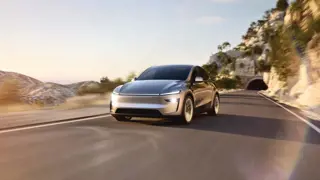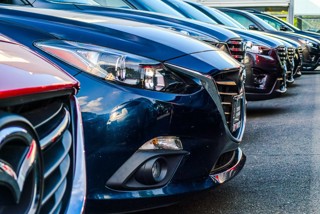Buyers of lower-emission cars are expected to bear the brunt of changes to Vehicle Excise Duty (VED) car tax from April 1 next year.
Those in the 91-100g/km of CO2 band will be hardest hit, seeing costs over six years rise from nothing to £820, according to Parkers.
Findings suggest that of the estimated £5.15 billion of additional revenue the new VED rules will generate by 2023, £4.69bn will be from buyers of cars emitting 1-130g/km of CO2, all of which are currently tax-free for the first year.
Parkers’ digital editor-in-chief Tim Pollard said: “Initially, the 2017 VED system appears to be an update of the existing scheme, albeit with new bands created and others combined.
“Notably, only buyers of cars with zero CO2 emissions will have the ability to remain car tax-free under the first year rate, as any model producing even 1g/km of CO2 will be subject to a charge from next year.
“Replacing the standard rate sliding scale for year two onwards is a streamlined system which penalises buyers of cleaner cars and effectively provides a financial incentive to purchase models which pollute most.
“Zero-emission cars again remain free, but all others face a yearly bill of £140.”
There’s a further surcharge for cars with a list price of £40,000 or higher – regardless of emissions, an annual charge of £310 from year two through to six will be imposed.
Buy a new car emitting just 99g/km of CO2 from April 2017 and instead of enjoying VED tax-free motoring, owners will instead be lumbered with an £820 levy over the first six years of ownership, Parkers said.
Select a premium plug-in hybrid with emissions quoted at 50g/km that also costs over £40,000 and by the time it’s six years old its owner will have contributed £2,260 to the Treasury instead of nothing under the present rules.
Meanwhile, those who opt for a high-polluting car priced below that £40,000 cap will actually be up to £925 better off under the new scheme after six years.
While Parkers said it broadly supports the notion of raising taxation to pay for road network improvements, penalising buyers of cleaner cars, while simultaneously reducing the tax bill for the heaviest polluters, “sends out the wrong message”.
“Our research also shines a spotlight on the Government’s environmental credentials, particularly as forthcoming EU emissions regulations require manufacturers’ average CO2 output to dip to 95g/km by 2020.
“Zero-emissions cars costing under £40,000 still give consumers a VED-free option but they don’t represent a realistic proposition for most buyers.
“We recognise that the Government has to act to keep VED car tax up to date with cleaner engine technology, but some of the quirks of the new system uncovered by Parkers’ investigation are distinctly unfair to Britain’s motorists.
“We predict widespread confusion among car buyers; this time next year, the goalposts are moving dramatically and many people’s tax bills will rise significantly.”
Parkers is a sister-brand of AM.



















Login to comment
Comments
No comments have been made yet.